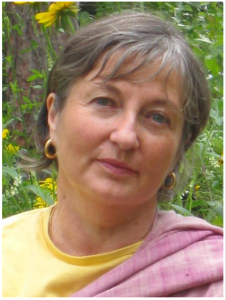Effort is an important part of the spiritual life, but so is acceptance. Many of us who are engaged in actively pursuing spirituality and enlightenment carry a strong sense of destiny that impels us to search, to study, to practice and finally to teach. Being open to accepting such a destiny can seem hard, at times, even isolating. Those who are thoroughly entranced by the world of consuming and exhibiting their wealth, their importance and their materialistic approach to life, can view those of us who are inclined to reflection and sharing as naïve, foolish and unrealistic.
But the world is in a perilous state, consumed by anger, greed and the delusion that we are separate from all creation and can consume the world’s resources with impunity. The process of waking people to the folly of this approach means that those of us who are inclined to the spiritual must accept this responsibility, its challenges and its costs.
We need to develop skillful methods to meet this challenge and the ancient science of mind that meditation offers us can help enormously. There are two basic types of meditation: those that promote tranquility and those that promote insight. Both are needed to unfold, but if they are not in balance then the unfolding that happens will also be out of balance. Both types rely on a basic underpinning of ethical conduct, and, I believe, an altruistic motivation.
We must always start with ourselves, meeting our own demons and foibles and mistakes with awareness and compassion, resolving to change our ways for the better. Insight brings us awareness and compassion brings us forgiveness. By being mindful of body, speech and mind, we become aware of the impact we have on others and the world. By forgiving ourselves and others we develop the tender heart full of compassion that wishes to always help others.
Developing insight into the nature of things requires effort. Developing compassion requires acceptance. When we open in this way, the miraculous draws near and the world and all its inhabitants become precious treasures to guard, protect and encourage.
The seemingly gentle art of meditation is, in fact, the development of a strength that we can take away from the meditation seat out into the world, into our homes, into our jobs, into our governments. If we do not accept this need to transform our world, if we do not accept our destiny, then how can we expect things to change for the better?
An ancient Chinese sage is reputed to have said, “We should meditate as if this is the last day of our lives but as if that day were 1,000 years long.”
© Catherine Rathbun, 2012
Catherine Rathbun has studied meditation with His Holiness XVI Karmapa, head of the Kagyu lineage of Tibetan Buddhism, and with pre-eminent individuals like Ven. Kalu Rinpoche, Ven. Karma Thinley Rinpoche, Ven. Namgyal Rinpoche and John Coleman. She received her traditional teaching name, Lama Jetsun Yeshe, from Ven. Karma Thinley Rinpoche, a lineage master of the Sakya and Kagyu traditions of Tibetan Buddhism, in 2002. Catherine taught meditation studies at York University for seven years (1989 to 1997). With a background in dance — she was a member of the National Ballet Company of Canada from 1962 to 1963 — and a modern dance career in England (1967-69), she frequently incorporates creative movement exercises into meditation studies as a way to bypass the tight hold that the Western intellect has on one’s development.
She is the author of Developing the World Mind and Clear Heart, Open Mind, and is currently working on a new book called Waiting for Truffles: Meditations for Daily Living. Her books are available from her directly or from Friends of the Heart or Snow Lion Meditation Shop, both in Toronto.
She is the founding teacher at Friends of the Heart, a meditation centre in Toronto.












